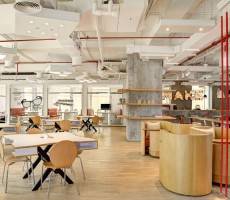July 2, 2015
Employees prefer diverse working experiences to traditional career ladder
 Employees value a varied working experience and flexibility over traditional, linear career progression, a global study published by the Top Employers Institute claims. The Career & Succession Management Report identifies the global developments forcing employers to rethink career and succession management strategies. These include skill shortages resulting in a global competition for best talent and an increased risk of losing business-critical knowledge due to the ageing of the workforce. There is also a new generation of workers seeking diverse work assignments and flexibility, who are taking greater responsibility for their own career management, resulting in less loyalty to employers and less interest in the traditional step-by-step climbing of career ladders. The findings suggest that HR needs to move from assuring the smooth succession of leadership to concentrate more on wider long-term staff engagement and retention.
Employees value a varied working experience and flexibility over traditional, linear career progression, a global study published by the Top Employers Institute claims. The Career & Succession Management Report identifies the global developments forcing employers to rethink career and succession management strategies. These include skill shortages resulting in a global competition for best talent and an increased risk of losing business-critical knowledge due to the ageing of the workforce. There is also a new generation of workers seeking diverse work assignments and flexibility, who are taking greater responsibility for their own career management, resulting in less loyalty to employers and less interest in the traditional step-by-step climbing of career ladders. The findings suggest that HR needs to move from assuring the smooth succession of leadership to concentrate more on wider long-term staff engagement and retention.


































June 30, 2015
Settings, silence, serendipity, wellbeing and other lessons from Neocon
by Paul Goodchild • Comment, Events, Furniture, Workplace design
(more…)